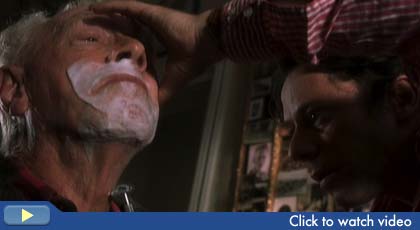“Charlie Wilson’s War” is a movie vehicle to please liberal audiences comfortable with confronting the reality of religion’s role on the global political stage. Starring Tom Hanks as Charlie Wilson, a scotch-swilling, womanizing Texas Congressman, Julia Roberts as Joanne Herring, a rich, conservative socialite, and Philip Seymour Hoffman as Gust, the quick-talking, foul-mouthed CIA agent, the film is filled not only with spot-on, early 80’s kitsch, but the politically savvy, left-leaning rhetoric “The West Wing” fans came to know and love from screenwriter Aaron Sorkin.
The plot basics: Charlie starts to notice news reports from Afghanistan about the Soviet invasion and also happens to sit on a Congressional committee that funds covert ops—he doubles the funding to the Afghans from 5 million to 10. This makes him the unlikely ally of Joanne, an outspoken Christian woman determined to wage a holy war of sorts on behalf of the Afghans. Between her connections and a little “gentle” convincing, and Gust’s expertise, Charlie soon finds himself touring Afghan refugee camps and begging his Congressional contacts to arm the Afghans against the Soviets with a level of funding never before seen in American history.
The God factor features prominently throughout the film—but whose side God is on remains an open question throughout. The potential for Christians, Muslims, and Jews to cooperate is tested, but the seeds for tragic future conflict (that which we now know so well) among these three world religions are not so subtly planted by movie’s end.
Audiences are treated not only to Sorkin’s superb writing, but a bit of political history and intrigue that not only fills in some blanks about where America is today and how we got here, but that happily does not shy away from the religious dimensions that factor so prominently in this trajectory.


